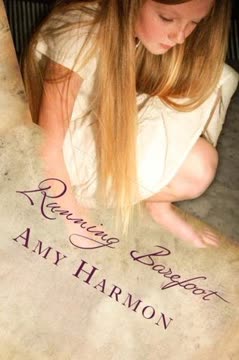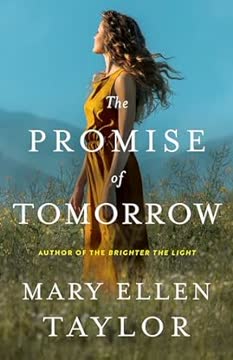Plot Summary
Levan's Quiet Heartbeat
Josie Jensen grows up in Levan, Utah, a town defined by its insularity, traditions, and the gentle rhythm of rural life. Her family, descended from Danish settlers, is tightly knit, but the town's slow decline and the loss of its vibrancy mirror the quiet struggles within Josie's own home. The community's interconnectedness means everyone knows each other's business, and the town's routines—church, chores, and neighborly support—form the backdrop of Josie's childhood. This environment, both nurturing and stifling, becomes the crucible in which Josie's resilience and independence are forged, especially as she faces the first great loss of her life.
Loss and New Beginnings
Josie's world is upended when her mother dies of cancer, leaving her to fill the void in her family. At just nine, she becomes the caretaker, learning to cook, clean, and manage the household. The community rallies around her family, but the support fades, and Josie is left to navigate grief and responsibility alone. Her father withdraws into work and alcohol, and her brothers, much older, are soon preoccupied with their own lives. Josie's childhood is cut short, and she finds solace in books, the cemetery, and the routines that keep her mother's memory alive. This early loss shapes her into a serious, self-reliant girl, but also leaves her yearning for connection and understanding.
The Maestro's Gift
A chance encounter with Sonja Grimaldi, a retired music professor, introduces Josie to the transformative power of music. Sonja becomes a mentor and surrogate mother, teaching Josie piano and nurturing her intellectual curiosity. Through daily lessons, Josie discovers her prodigious talent and the emotional language of music, which becomes both an escape and a means of processing her grief. Sonja's unconventional teaching and wisdom help Josie navigate puberty and the complexities of growing up without a mother. The bond between them is deep, and Sonja's influence instills in Josie a love for words, literature, and the pursuit of beauty, setting her on a path of self-discovery.
Samuel's Arrival
Samuel Yates, a Navajo teenager, comes to live with his grandparents in Levan after trouble on the reservation. His presence is met with suspicion and prejudice, but he is also a mystery—quiet, proud, and carrying his own burdens. Josie and Samuel are assigned to sit together on the school bus, and their initial interactions are fraught with misunderstanding and cultural tension. Samuel's guardedness and Josie's awkwardness set them apart from their peers, but a shared sense of isolation and difference begins to draw them together. Their unlikely friendship is born in the crucible of small-town scrutiny and personal pain.
Unlikely Friendship
Josie and Samuel's friendship deepens as they read Wuthering Heights together on the bus, using Josie's beloved dictionary to decode the language. Their discussions about literature, love, and identity become a safe space for both, allowing them to reveal wounds and dreams they hide from others. Josie's intellectual curiosity and Samuel's quiet strength complement each other, and they begin to challenge and support one another. Through shared stories and music, they find understanding and acceptance, forging a bond that transcends their differences and the prejudices of those around them.
Words, Music, and Healing
As Josie and Samuel continue to read, debate, and listen to music together, their friendship becomes a source of healing and transformation. Josie helps Samuel with his schoolwork, and he, in turn, teaches her about Navajo culture and the complexities of being caught between two worlds. Music becomes their common language, with Josie introducing Samuel to classical composers and Samuel sharing the spiritual significance of song in his heritage. Their connection deepens into something unspoken and powerful, offering both a sense of belonging and the courage to face their personal challenges.
Prejudice and Protection
The small-town environment is not kind to outsiders, and Samuel faces racism and bullying, particularly from other students. When Josie becomes the target of harassment, Samuel intervenes, risking further alienation. Their friendship is tested by the scrutiny and gossip of the community, as well as by their own insecurities. Yet, through these trials, they learn to trust and rely on each other, finding strength in their shared outsider status. The experience cements their bond and teaches them about the cost and necessity of standing up for what is right, even when it is unpopular.
Lessons in Love
Through their discussions of classic novels and their own experiences, Josie and Samuel grapple with the nature of love, obsession, and sacrifice. Their debates about Wuthering Heights and Othello become metaphors for their own fears and hopes. Josie's understanding of love, shaped by scripture and loss, challenges Samuel's cynicism, while Samuel's honesty forces Josie to confront her own vulnerabilities. Their emotional intimacy grows, but so do the complications of age, culture, and the expectations of others. The lessons they learn from each other lay the groundwork for the love that will define their lives.
Winter's Turning Point
A winter accident leaves Josie stranded and injured, and Samuel comes to her rescue, deepening their connection. The ordeal forces them to confront their feelings and the reality of their dependence on one another. The rescue is both literal and symbolic, marking a turning point in their relationship. Josie's gratitude and Samuel's sense of responsibility intertwine, and the boundaries between friendship and something more begin to blur. The experience also highlights the limitations and dangers of their environment, as well as the resilience and resourcefulness they have developed.
Music as Salvation
Josie's musical talent is finally recognized when she performs at the town's Christmas Eve service, moving the entire community—including Samuel, who breaks tradition by applauding her. The performance is a moment of triumph and validation, affirming Josie's identity as an artist and her ability to touch others through music. Samuel's public support is a declaration of his feelings, and the event marks a shift in how Josie is seen by the town and by herself. Music becomes not just a refuge, but a means of connection and self-assertion, giving Josie the confidence to dream beyond Levan.
Growing Up Apart
As Samuel prepares to join the Marines and Josie enters high school, their lives begin to move in different directions. The realities of age, race, and circumstance force them to confront the limits of their relationship. Letters become their lifeline, but distance and time create new challenges. Josie finds love with Kasey, a local boy, and for a time, her life seems to follow a more conventional path. Samuel's experiences in the military and his struggles with identity and belonging shape him into a man, while Josie's journey is marked by love, loss, and the search for purpose.
Letters Across Years
The years apart are bridged by letters—some sent, some unsent—that chronicle Samuel's experiences in the Marines and Josie's life in Levan. Their correspondence is a testament to the enduring power of their bond, even as they grow and change. Samuel's letters reveal his struggles with violence, identity, and the search for meaning, while Josie's reflect her resilience and longing. The letters become a record of their parallel journeys, each shaped by the other's influence, and a reminder that true connection can survive even the longest separations.
Love, Loss, and Kasey
Josie's relationship with Kasey offers her a chance at happiness and normalcy. Their love is sweet and uncomplicated, and for a time, Josie believes she has found her future. But tragedy strikes when Kasey is killed in a car accident just before their wedding, plunging Josie into a new cycle of grief. The loss is devastating, and Josie is forced to confront the fragility of life and the unpredictability of fate. Kasey's death leaves her adrift, questioning the meaning of love and the possibility of moving forward.
Grief's Long Shadow
In the aftermath of Kasey's death, Josie withdraws from life, her dreams of music and adventure replaced by duty and survival. She cares for her ailing father, takes on work to support them, and lets go of her ambitions. The weight of grief and responsibility is heavy, and Josie's world becomes smaller and more constrained. Even music, once her salvation, becomes a source of pain. The years pass in a blur of routine and sacrifice, and Josie loses touch with the parts of herself that once brought her joy.
Samuel's Return
Samuel's unexpected return to Levan stirs up memories and emotions Josie thought she had buried. Now a man, shaped by war and experience, Samuel is both familiar and changed. Their reunion is awkward and charged, as they navigate the distance that time and pain have created. The town's gossip and their own fears complicate matters, but the connection between them is undeniable. As they spend time together, old wounds are reopened, but so is the possibility of healing and new beginnings.
Relearning Joy
With Samuel's encouragement, Josie begins to reclaim the parts of herself she had lost—her love of music, her sense of wonder, and her capacity for joy. Their shared experiences, from running together to late-night conversations, help Josie rediscover her passion and hope. Samuel's presence challenges her to imagine a future beyond Levan, while his own struggles with identity and purpose find solace in her acceptance. Together, they learn to balance the demands of duty and the desire for happiness, forging a partnership built on mutual respect and understanding.
Facing the Past
Josie and Samuel must each confront the ghosts of their past—Josie's guilt over Kasey's death and her sense of obligation to her family, Samuel's experiences in war and his complicated relationship with his heritage. Through honest conversation and vulnerability, they begin to let go of the burdens that have held them back. Josie's father, recognizing her need for happiness, encourages her to pursue her own life, giving her the permission she needs to choose love over duty. The process is painful, but it clears the way for healing and growth.
Navajo Roots
Samuel takes Josie to visit his grandmother on the Navajo reservation, immersing her in his culture and history. The experience is transformative, offering Josie new perspectives on identity, belonging, and the meaning of home. Samuel's grandmother recognizes the love between them and blesses their union, while Josie gains a deeper appreciation for the complexities of Samuel's life. The journey is both a literal and symbolic crossing of boundaries, affirming their commitment to each other and the blending of their worlds.
Choosing Harmony
Back in Levan, Josie faces the final choice between staying in the safety of the known and stepping into the unknown with Samuel. Encouraged by her father and the lessons of her past, she chooses to follow her heart, proposing to Samuel and embracing the possibility of happiness. Their love, forged in adversity and sustained by mutual respect, becomes a source of strength and inspiration. Together, they create a new harmony, blending their histories, cultures, and dreams into a shared future.
The Leading Note
Josie and Samuel's marriage is a celebration of endurance, forgiveness, and the power of love to heal and transform. Surrounded by family, friends, and the memories of those they have lost, they begin their life together with hope and gratitude. The music that once saved Josie now becomes the soundtrack of their union, and the lessons they have learned—about sacrifice, resilience, and the importance of following one's heart—become the foundation of their new life. Their story is a testament to the enduring power of love and the possibility of redemption.
True Love Endures
In the years that follow, Josie and Samuel build a life rooted in love, music, and the lessons of their past. Their union bridges cultures and generations, honoring the people and traditions that shaped them. Through music, teaching, and service, they give back to their communities and to each other. The story ends with a sense of fulfillment and peace, as Josie reflects on the journey that brought her to this place—a journey marked by loss, longing, and ultimately, the discovery that true love, like music, endures beyond all sorrow.
Characters
Josie Jensen
Josie is the heart of the story—a girl forced into adulthood by her mother's early death, shaped by the demands of family and the constraints of small-town life. Her intelligence, sensitivity, and passion for music set her apart, but also isolate her. Josie's journey is one of self-discovery, as she learns to balance duty and desire, grief and hope. Her relationships—with Sonja, Samuel, and Kasey—reveal her capacity for deep love and loyalty, but also her fear of abandonment and her struggle to claim happiness for herself. Over time, Josie grows from a self-sacrificing caretaker into a woman who chooses love and fulfillment, honoring her past while embracing her future.
Samuel Yates
Samuel is a complex figure—half Navajo, half white, caught between cultures and worlds. His early life is marked by loss, displacement, and the struggle to find acceptance. In Levan, he faces prejudice and isolation, but his friendship with Josie becomes a lifeline. Samuel's quiet strength, intelligence, and sense of honor define him, as does his journey through the Marines and his eventual embrace of his heritage. His love for Josie is steadfast but complicated by circumstance and self-doubt. Samuel's arc is one of reconciliation—between past and present, duty and desire, and the different parts of himself.
Sonja Grimaldi
Sonja is the catalyst for Josie's awakening, offering her the gift of music and the wisdom of experience. Her unconventional teaching and nurturing presence fill the void left by Josie's mother, encouraging Josie's intellectual and artistic growth. Sonja's own story—marked by loss, resilience, and a passion for beauty—mirrors Josie's, and their bond is one of mutual respect and love. Sonja's decline into illness is a profound loss for Josie, but her influence endures, shaping the woman Josie becomes.
Jim Jensen (Josie's father)
Jim is a man broken by loss, struggling to care for his children while coping with his own grief. His withdrawal into work and alcohol leaves Josie to shoulder the burdens of the household, but his love for her is deep, if often unspoken. Over time, Jim comes to recognize Josie's sacrifices and encourages her to pursue her own happiness, offering her the permission she needs to choose love over duty. His journey is one of healing and acceptance, as he learns to let go and trust in his daughter's strength.
Kasey Judd
Kasey represents the possibility of a simple, happy life for Josie—a love uncomplicated by tragedy or difference. His warmth, humor, and devotion offer Josie comfort and hope, and their relationship is marked by innocence and joy. Kasey's sudden death is a devastating blow, forcing Josie to confront the impermanence of happiness and the necessity of moving forward. His memory lingers as both a source of pain and a reminder of what is possible.
Nettie and Don Yates
Samuel's grandparents are a source of stability and support, both for him and for Josie. Their home is a refuge, and their acceptance of Samuel, despite the challenges, is a testament to the power of family and tradition. Nettie's practical wisdom and Don's quiet strength provide a counterpoint to the turbulence of Josie and Samuel's lives, and their presence anchors the story in the values of loyalty, hard work, and unconditional love.
Tara Ballow
Josie's cousin and confidante, Tara is a foil to Josie's seriousness—outgoing, talkative, and unfiltered. Her friendship offers Josie a connection to the lighter side of life, and her support is unwavering, even when she doesn't fully understand Josie's struggles. Tara's presence brings humor and warmth to the story, reminding Josie of the importance of joy and companionship.
Grandma Yazzie
Samuel's Navajo grandmother embodies the strength and resilience of her people. Her teachings, stories, and rituals offer Samuel and Josie a deeper understanding of identity, belonging, and the importance of harmony. Grandma Yazzie's acceptance of Josie and her blessing of their union are pivotal moments, affirming the possibility of bridging cultures and creating new traditions.
Louise Ballow
Josie's aunt is a source of both support and exasperation—a woman who speaks her mind and takes charge. Louise's presence in Josie's life is grounding, offering help when needed and pushing Josie to care for herself. Her humor and pragmatism provide balance to the story's more emotional moments.
Kasey's Parents (Brett and Lorraine Judd)
Kasey's parents represent the enduring pain of loss and the challenge of moving forward. Their continued presence in Josie's life is both a comfort and a source of guilt, as she navigates the complexities of loving again after tragedy. Their acceptance of Josie's new life is a quiet act of grace, allowing her to honor the past while embracing the future.
Plot Devices
Dual Narratives of Loss and Healing
The novel weaves together Josie and Samuel's stories, each marked by early loss, cultural displacement, and the search for belonging. Their parallel journeys are mirrored in the structure of the narrative, with alternating moments of connection and separation. The use of letters, music, and shared literature as recurring motifs underscores the ways in which art and communication can bridge even the deepest divides. The story employs foreshadowing—through dreams, music, and the wisdom of elders—to hint at future challenges and resolutions, while the cyclical nature of seasons and traditions reinforces the themes of renewal and endurance.
Music as Metaphor and Catalyst
Music is both a literal and symbolic force in the novel, representing Josie's inner life, her connection to others, and her path to healing. Performances, lessons, and shared listening sessions serve as turning points in the narrative, marking moments of transformation and intimacy. The language of music—tonic notes, harmonies, and compositions—becomes a metaphor for love, identity, and the search for meaning. The novel's structure, with its crescendos, codas, and reprises, echoes the form and emotional arc of a symphony, inviting readers to experience the story as both narrative and song.
Cultural Contrast and Synthesis
The tension between Josie's small-town, Danish-Mormon heritage and Samuel's Navajo roots is a central plot device, explored through dialogue, rituals, and journeys. The novel uses cultural stories, legends, and traditions to highlight both the differences and the commonalities between the characters' worlds. The blending of these cultures—through marriage, shared values, and mutual respect—serves as a model for reconciliation and harmony, challenging stereotypes and inviting empathy.
Letters and Unsent Messages
The use of letters—some exchanged, some withheld—serves as a narrative device to reveal inner thoughts, bridge gaps, and maintain connection across years and miles. The letters provide insight into the characters' growth, fears, and hopes, and their eventual sharing becomes a moment of catharsis and understanding. This device also allows for the exploration of what is left unsaid, the power of silence, and the importance of vulnerability in building trust.
Foreshadowing and Symbolism
Recurring symbols—such as the changing seasons, the Wall of Words, and the motif of running barefoot—foreshadow key events and emotional shifts. Dreams and stories told by elders serve as both warnings and guides, offering wisdom that the characters must interpret and apply. The use of music as both background and foreground reinforces the idea that life, like art, is shaped by both structure and improvisation, and that meaning is often found in the spaces between.
Analysis
Running Barefoot is a luminous meditation on loss, resilience, and the redemptive power of love and art. Amy Harmon crafts a narrative that is both deeply personal and universally resonant, exploring how early trauma shapes identity and the ways in which connection—through music, literature, and shared vulnerability—can heal even the deepest wounds. The novel's structure, echoing the movements of a symphony, invites readers to experience the story as an emotional journey, marked by crescendos of joy and codas of sorrow. At its heart, the book is a celebration of difference and the possibility of harmony—between cultures, generations, and individuals. Josie and Samuel's love story is not just a romance, but a testament to the courage required to choose happiness in the face of fear, to honor the past while embracing the future, and to believe that true love, like music, endures beyond all loss. The novel's lessons—about forgiveness, self-acceptance, and the importance of following one's own melody—are as relevant today as ever, offering hope and inspiration to anyone who has ever felt out of place or afraid to begin again.
Last updated:
Review Summary
Running Barefoot is a deeply emotional love story that spans a decade, following Josie and Samuel's journey from childhood friendship to adult romance. Readers praise Harmon's beautiful writing, complex characters, and exploration of music, literature, and Navajo culture. Many found the story touching and cried multiple times. Some felt the pacing was slow and religious references excessive. Overall, most reviewers were captivated by the characters' growth and connection, recommending it as a heartwarming, thought-provoking read despite a few critiques.








